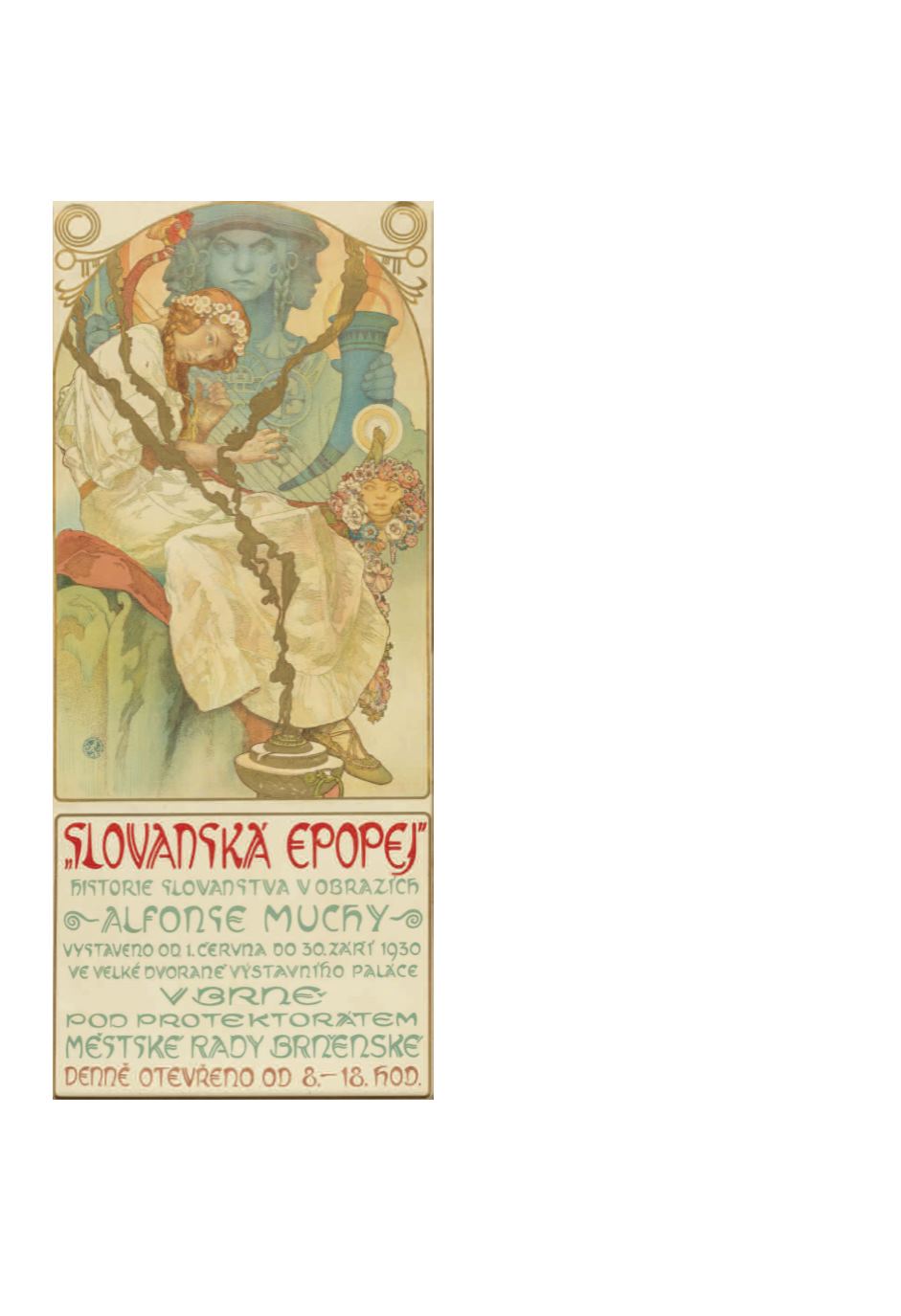

ALPHONSE MUCHA (1860-1939)
217
●
“SLOVANSKÁ EPOPEJ.” 1928.
69
5
/
8
x29
3
/
4
inches, 176
7
/
8
x75
1
/
2
cm. V. Neubert
A. Synove, Prague.
Condition B+: minor repaired tears in margins;
creases in margins and image; minor overpainting
in lower left image; slight discoloration at upper
left edge. Two-sheets. Framed. Unexamined out of
frame.
“Alphonse Mucha considered
The Slav Epic
, a
series of twenty monumental paintings depicting
the Slav People, his most important and
meaningful artistic and personal accomplishment.
The idea of creating large mural paintings
from the history of the Slavs as a gift to his
nation satisfied his need to prove his talent as
a painter, to express the sincere patriotic
feelings for his native land and to declare his
allegiance to the concept of Pan-Slavic unity”
(The Spirit of Art Nouveau p. 96). Although
Mucha originally conceived of this project as
early as 1899, he did not begin work on the
giant canvases (some as large as 18 feet tall)
until 1910. He finished the project 18 years
later and gifted them to the city of Prague.
This poster advertises the exhibition of the
completed works. The text banner was printed
separately, and in this
RARE
instance promotes
the
Slav Epic
exhibition which opened in 1930
in Brno, Czechoslovakia's second largest city.
“Mucha’s design contains symbolic incidents
from early Slavic history. In the background is
an image of the powerful three-faced Slavic
pagan god Svantovit with a sword and a
drinking cup made of horn, in which the level
of wine predicted good or poor harvest. The
young Slav girl in the foreground is
strumming on an instrument similar to a harp.
On its upper end, the red head of a cock . . .
on its lower end, a nightingale sings in front of
a pale moon-like circle” (Spirit of Art Nouveau
p. 326). The model for young girl is actually
Mucha’s daughter, Jaroslava, and this image of
her appeared in the 18th painting in the series,
The Oath of Omladina under the Slavic Linden
Tree
. Rennert / Weill 111, Lendl p. 294, Brno
74 (var), Mucha / Henderson 116, Mucha /
Bridges A71, Spirit of Art Nouveau 126.
[8,000/12,000]
















